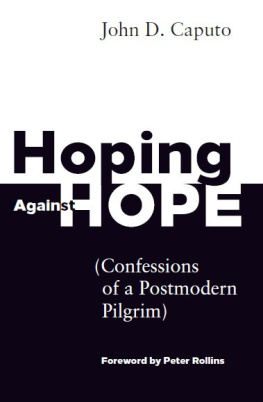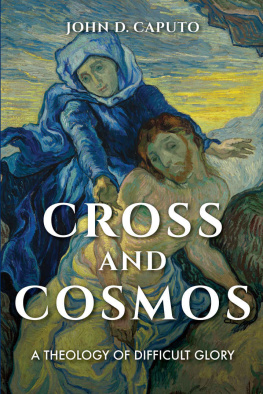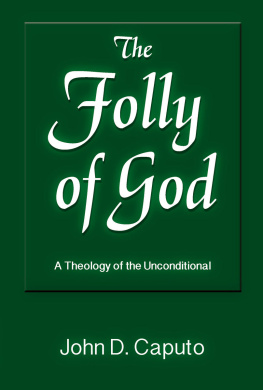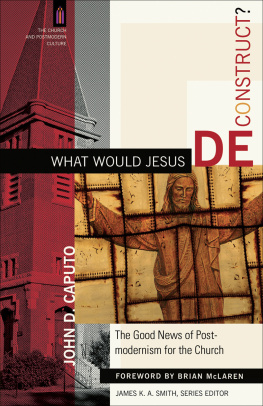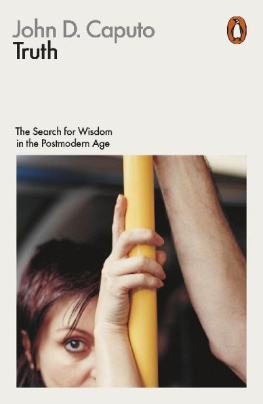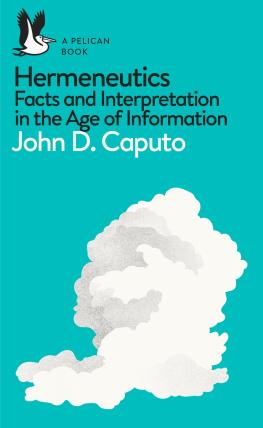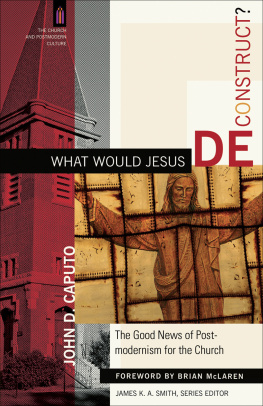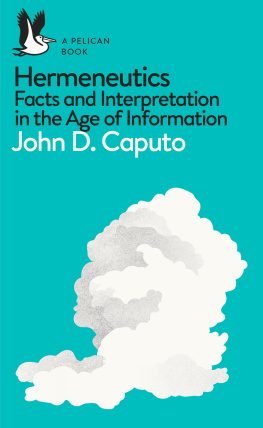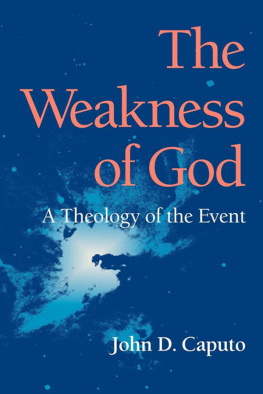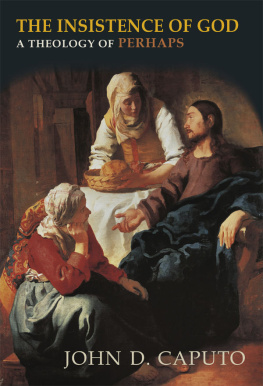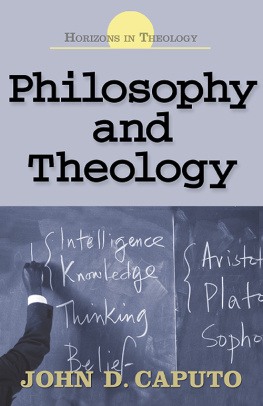Peter Rollins
I vividly remember discovering the work of John Caputo. It was a Monday morning, and I was in a Belfast bookshop, flicking through the philosophy section, with its usual mix of dry and different texts. Then, in between two large tomes, I glimpsed a slim text called On Religion and flipped through it.
I was instantly hooked. It was obvious that the author was an accomplished academic. The ease with which he introduced complex thinkers and weaved together difficult ideas demonstrated a lifetime of careful study. Yet this was not some detached, condescending critique of religion that I had come to expect from so many in the philosophical world. While it was in no way an apologetic text defending traditional dogma, it showed a profound sensitivity and respect for peoples lived experience of faith. In addition to this, the writing possessed a rare passion and playfulness that brought to mind thinkers such as Pascal, Nietzsche, and Kierkegaard. I bought the book and finished it in one sitting.
Since that time Ive read everything that Caputo has written. His work continues to nourish my soul and has been a constant guide as I pursue my own intellectual project.
Each book has rewarded me in multiple ways, but the one you are holding in your hands has given me something very special, something I thought had been lost to my younger self, for it transported me back to that intoxicating intellectual excitement I had felt all those years ago in that backstreet bookshop in Belfast.
Within these pages, the youthful wonder, religious sensitivity, and academic sophistication that caused me to fall in love with Caputos work leap off every pageonly now these features that first drew me in take on a life of their own as each is introduced as a distinct voice that speaks through the author. They are each brought to light as personalities that haunt Caputo, as friends who engage in heated late-night debate while the author tries to sleep.
There is Jackie, the little boy lost in a fearful wonder at the fact that there is something rather than nothing. There is Brother Paul, a young religious zealot, eager to renounce the temporal world for eternal rewards. Then there is the Professor, a sober academic embedded in the complex philosophical tradition.
As the work progresses, one might think that one of these voices will triumph, that the others will slowly be left on the side of the road. Yet none of them is willing to rest. Each is given space, and each has something important to say. As we listen in on their conversation, the central themes of the bookthe religion of the rose, the nihilism of grace, the insistence of God begin to shine forth.
While the themes of the book call into question an economic view of religion that asks us to do good for a good return, they dont leave us with a simple dualism. This religion of the rose doesnt abolish economy but haunts it with the gift. The eternal isnt rejected as a fantasy that stands against the temporal but is affirmed as a reality that inhabits it. The unconditional isnt seen as a promise of something that lies at the other side of the conditional but as an elusive phantom nestled deep within it.
On this journey into a faith that affirms the finite, various thinkers become conversation partners and guides. The famous analysis of our contemporary situation provided by Jean-Franois Leotard is used to describe our existential yoke, while mystics such as Marguerite Porete and Meister Eckhart are employed to show us how we might bear this weight joyfully.
This book sits in the tradition of Radical Theology. Yet it isnt marked by the same apocalyptic negativity that is sometimes found there. When confronting this tradition for the first time people often ask, But will it preach? In other words, can it inspire, uplift, and transform communities? Can it enrich lives and evoke greater care and concern for our world? This book answers as a resounding Yes! to the question. It shows us that not only can it preach, but it can inspire all the amens, hallelujahs, and hand waving that we might expect from a Pentecostal revival meeting.
Indeed the whole tone and texture of the presentation cant help but remind the theologically sensitive reader of Dietrich Bonhoeffers religionless Christianity, a Christianity marked by joyful affirmation of the world, forged in a prison where Bonhoeffers life would later be taken. In the letters and papers he penned from his tiny cell, Bonhoeffer outlined a faith fully embracing the world and wrote of how one lives fully before God and with God only as one gives up on God and wholeheartedly embraces the world.
While the little Boy, the Brother, and the Professor are the main characters in this philosophical memoir, there is another figure lurking in the background, a trickster who appreciates the existential fear of Jackie, the religious desire for answers expressed by Paul, and the academic interest in order that marks the professor. This figure is also called Jackie, and he hints at a little secret: that there is no secret. None that we know of anyway. Instead of giving answers, this Jackie encourages the others to divine the contours of a smile emanating from the face of the deep and invites us to smile back. Like an adventurous child standing at the open mouth of a caveboth frightened and enticed by the unknown just over the thresholdthis Jackie invites us to feel a shiver of awe and wonder at our little moment in the sun.
There are no cheap promises in this book, no snake-oil sales pitches or prosperity prayers. To read this beautiful book is to enter the chapel of a religion without why. It is to join a chorus of praise to life in all its frailty and finitude, and it is to listen in on a sermon of worldly affirmation. The point of all this profane spirituality is not to make us feel safe within the chapel walls, but rather to discover that there are no walls to this chapel.
I commend this work to you as among the most inspiring and insightful texts on the meaning of faith I have ever read.
Peter Rollins
Belfast, Northern Ireland

